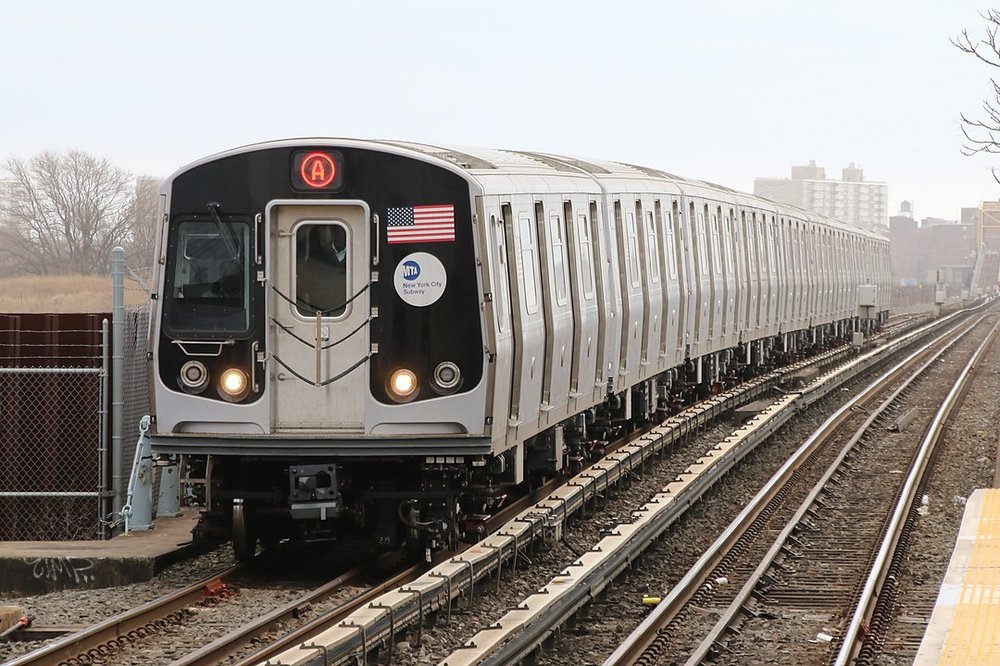Unspecified Train Door Problems Put Hundreds Of New Subway Cars Out Of Service
Jan. 8, 2020, 12:26 p.m.
The move renews attention on train maker Bombardier, the Canadian company that provides most of the subway cars for New York City.

The MTA took 298 of its newest subway cars out of service late Tuesday for a “thorough inspection” due to a problem with the doors on two trains.
The MTA says no one was injured, but the two incidents, which the agency declined to elaborate on, “raised questions about the reliable operation of a door mechanism on their newly-delivered R179 cars,” the MTA wrote in a statement.
“Out of an abundance of caution, NYCT removed all R179 train cars from service overnight for thorough inspection and re-deployed other spare cars to continue service for this morning’s rush and ensure minimal impacts to customers.”
The cars serviced the A, C, J and Z lines. On Wednesday morning, the transit agency said there was a two minute longer wait between trains on the J and Z lines and skip-stop service on those lines was suspended during the morning rush.
The MTA has hired a third party, LTK Engineering Services, to inspect the cars. The move renews attention on train maker Bombardier, the Canadian company that provides most of the subway cars for New York City.
“Bombardier sold us lemons. Straphangers need the MTA to manage these contracts from the beginning — before the trains go off the rails,” New York City Comptroller Scott Stringer said Wednesday, after learning all the new Bombardier trains were taken out of service.
Last month, Stringer released an audit of Bombardier and its $600 million contract that included the 298 trains under review.
The comptroller’s audit also found multiple delays and failures of oversight by the MTA.
Bombardier, in turn, put the blame on door system supplier Kangni, noting that doors were “not properly calibrated.”
“We have brought in additional skilled technicians who are working around the clock to inspect, calibrate and test the door systems,” said Maryanne Roberts, a Bombardier spokesperson.
This isn’t the first time there have been issues with the doors. Starting in 2018, three cars had to be taken out of service due to door and emergency brake-valve issues.
“Failure to properly oversee the overseas supplier and subcontractor that manufactured truck frame castings, critical structural components under the subway cars that support the cars and hold their wheels, motors, and other mechanical equipment in place,” the Comptroller’s audit noted.
After the report, Transit President Andy Byford addressed the issues raised by the Comptroller, noting that the MTA is aware of all these issues and that the MTA has “held Bombardier’s feet to the fire throughout this contract.”
“Let’s be crystal clear. The villain of the piece here is not the MTA. The villain of the piece is Bombardier, and that comes across not only in the Comptroller’s report but also in our response. Bombardier let the MTA down, Bombardier let New Yorkers down, that's why we held them to account and that's why I have been meeting with them on a regular basis. That's why we will continue to hold their feet to the fire until the very last trains are delivered later this month,” Byford said in December.
In total, the comptroller estimates the delays cost the MTA $35 million in costs for maintaining the old fleet of train cars. The oldest cars, the R32s, date back to the 1970s.
The MTA got Bombardier to send 18 extra cars for free, for all the trouble, which arrived at the end of December, completing the contract, according to Bombardier.
The MTA has a total of 6,716 subway cars, with 5,400 in service on any given day.
The MTA also has more than 1,000 new subway R211 cars coming from Kawasaki that will run on the lettered lines.
As part of the MTA’s $51.5 billion capital plan, the agency plans to buy 1,900 new subway cars, equipped to run on tracks with modern, CBTC signals. It’s unclear if the MTA will continue to use Bombardier as its supplier. The governor had called for debarring companies that are late and over budget, but the MTA board has yet to debar any companies it works with.